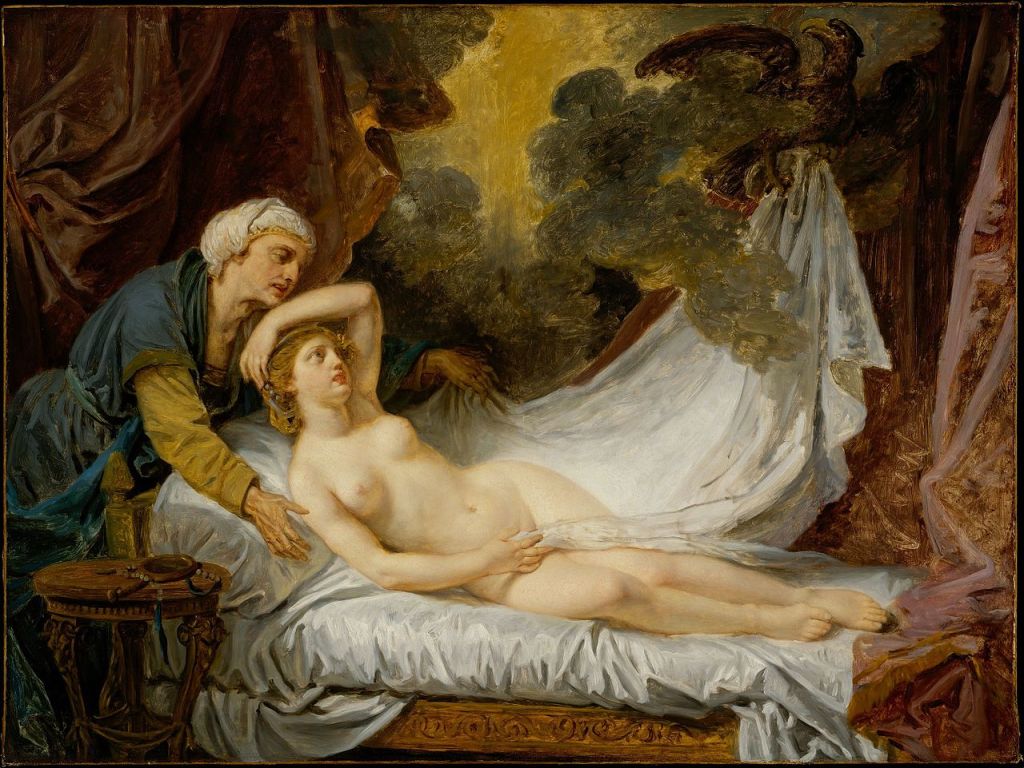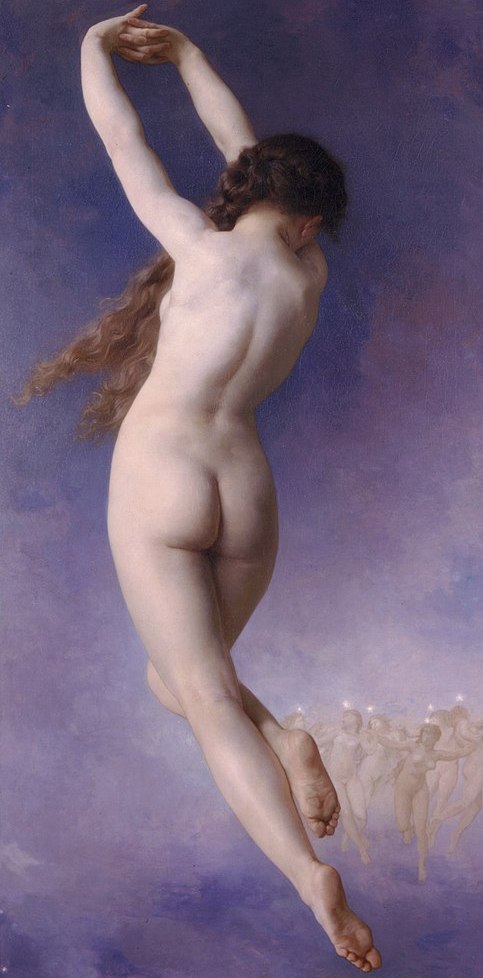Camus来了:那些生命中逃不掉的爱与哀愁
应该是原来在书香玩的时候,有个MM贴了三个肌肉男考我,你喜欢哪一个?
我挑的是这个。

忘了被直接嘲笑没有,肯定没被夸(不然我会记住的)。我记得有8挂说这个家伙没成名前试镜,屡屡被嫌弃长得不够好拿不到角色。
不过我的理由很简单,他聪明啊。我可不是因为他演过Alan Turing或者福尔摩斯才这么说,是我追ELLE UK,他经常被请出来打岔,我喜欢他朴实忠厚里的机智幽默,和华人演员里很少见的坦然淡定——这样说当然不是很客观,我都20年没关注过华人演员,只是偶尔点开别人贴的综艺节目,发现连三分钟都看不进去,太闹了。
我更不喜欢的是,貌似时下中文舆论里对人的评论,无论性别职业,上来就是颜值美丑脸,这么公开的RACISM,不仅不自知还很自傲,真的是肤浅无知词穷到那种程度?
说这个当然有点跑题,其实是查到Albert Camus的照片之后没忍住多扫了一眼,不错啊,电影明星一样,必须承认,哲学家里,不多见(欧洲人当他是哲学家的成分大过文学家)。

很像吧,Humphrey Bogart。我们本地有个电视台是政府出资,一般没什么商业广告但是也没钱买新片,经常会拿5,60年代老电影填空,我跟着看了不少以前只听过没见过的老片,当然少不了他。

一点不奇怪。Camus的爸爸妈妈分别有法国和西班牙血统,他自己是阿尔及利亚人(当时还是法国的殖民地,所以说法语),Physically来说,这种半非半欧的混血长得最好,无论身材还是面孔,挺拔干净健康,不打草稿不化妆都可以直接上镜——当然,不符合国人那种白瘦幼弱智男的像女的女的象病人的变态审美。
扯太远,回来回来。
好吧,我想说,Camus我能看进去,是因为他写的聪明。写的聪明通透的文字,读起来心悦神怡,浮生红尘中能够遇到,的确属于属于geistliche Segnungen。
Camus是1957年诺贝尔文学奖的获得者,委员会给他的评论是,for his important literary production, which with clear-signed earnestness illuminates the problem of human conscience in our times。当时的Camus只有44岁,是历史上第二年轻的文学奖获得者(再年轻的是英国人Rudyard Kipling),所以他在获奖感言里说,A man almost young, rich only in his doubts and his work still in progress(这段视频YouTube可以找到,他说法语,英文字幕)。
我个人认为,earnestness指的是他的文字简单直白如利斧劈柴,一刀是一刀,绝不拖泥带水没有半分不必要的修饰,所以得到读者“如孩童语言一般赤裸坦诚”,“Camus是我的天使,他永远能说出我最想说的话”的评价。
The Stranger开篇,Mama died today. Or Yesterday maybe, I don'T know. i got a telegram from the home,Mother deceased. Funeral tomorrow. Faithfully yours. That doesn't mean anything. Maybe yesterday.
这个风格,同Kafka或者Dostoevsky非常接近。我相信Camus受他们俩影响很大,因为在Myth of Sisyphus里Camus用很大的篇幅来讨论这两个,包括作品和人。
我说的Kafka是Franz Kafka,可不是这个
我们经常在办公室中午烤这个,因为便宜简单好吃好做,老板出钱买小面包和香肠,同事分别带做好的各种酱,搬来家里的烤炉,很容易就混一顿午饭。我有时候在家也哄孩子自己烤,我们老三都能吃一个半——她瘦的小鸡一样,多吃一口都够我高兴三天了。
The Stragner和The Plague(英文版)我都看了,都非常短。The Plague200页多一点,The Stragner只有120页,随便在凳子上多做一会儿也翻完了。所以这种书看完留下的不是情节内容,是感觉。如同其他路边风景,过了也就过了,再回望也许已经花叶模糊,忘不了的,是当时的感觉。
既然提到The Myth of Sisyphus,就顺着这个往下说。
这本书的全称是,The Myth of Sisyphus and other Essays。The Myth of Sisyphus是其中最短的一篇(没数字数,纯粹个人感觉)。诺贝尔委员会的评价“the problem of human conscience in our times”应该和它的主题最有关。正如Camus自己在文里写的,It attempts to resolve the problem of suicide, as The Rebel attempts to resolve that of murder, in both cases without the aid of eternal values which, temporarily perhaps, are absent or distorted in contemporary Europe。
上一次说到Satre和他的Existentialism,Satre有一个很重要的观点也是Existentialism很重要的一个观点,人是自由的,所以人可以自由地选择生或者死,比如结束自己的生命。尽管Camus被学术界列在Existentialism里,但是Camus自己是不同意这一点的,包括在诺贝尔获奖感言里都提到,他自己不是Existentialism,而是Absurdism。
很简单,Camus并不同意人应该自由选择死亡。他提倡的Absurdism是,世界是purposeless, meaningless, rationalless的,作为人,只能接受这一点,但是这也恰恰给了人Freiheit,在这种meaningless里创造出meaning来。There is but one truly serious philosophical problem, and that is suicide. Judging whether life is or is not worth living amounts to answering the fundamental question of philosophy....Even if one does not believe in God, Suicide is not legitimate。
Absurd对Camus来说,完全就是一种感觉,It happens that the stage sets collapse. Rising, streetcar, four hours in the office or the factory, meal, streetcar, four hours of work, meal, sleep, and Monday Tuesday Wednesday Thursday Friday and Saturday according to the same rhythm—this path is easily followed most of the time.
我们中文里说这个现象是什么?芸芸众生,忙碌如蝼蚁——也许每个人一生里都会有类似的感觉,街角处突然的困惑,亲人离世,爱人远走,或者自己突患重疾,满眼是陌生的行人熙熙攘攘匆匆,接下去往前走,还有什么意义?
又或者象赵传唱的,每一个早晨,在浴室镜子前,却发现自己活在剃刀边缘?
这一切,都属于Camus提到的Absurd。
另外一个他描述的场景,A man is talking on the telephone behind a glass partition; you cannot hear him, but you see his incomprehensible dumb show: you wonder
why he is alive。这个画面,好像被很多实验派电影拿去用,不知道他们是互相谁抄谁。
所以,第一点,不管人接不接受,世界是meaningless,人和世界的关系是,就是这么absurd。
那么,人可以通过suicide来逃离这种absurd?
不能。suicide完全解决不了任何问题,只是把问题关起来,不看。
It may be thought that suicide follows revolt—but wrongly. For it does not represent the logical outcome of revolt. It is just the contrary by the consent it presupposes. Suicide, like the leap, is acceptance at its extreme...The absurd man can only drain everything to the bitter end, and deplete himself.
宗教,是人们喜欢选择的逃离这种absurd的第二个出口,人们通过宗教寻找生或者死的(包括死后)的意义。同Satre一样,Camus被世人普遍认为是典型的Atheist,——被他自己否定,I don't believe in God but I am not an Atheist,有说法是,这种叫“有信仰的无神论者”。
代表人物还有谁?另一个Albert啦,Albert Einstein。
并且,Camus认为把宗教当出口,属于,Philosophical Suicide。他认为这是一种人放弃对自己的信任的行为,You know the alternative: either we are not free and God the all-powerful is responsible for evil. Or we are free and responsible but God is not all powerful. All the scholastic subtleties have neither added anything to nor subtracted anything from the acuteness of this paradox.
我看到一个说法,在法国,Camus一直生活在Satre 的阴影中,因为有太多共性。同Satre一样的还包括,Camus也曾经是坚定的共产主义支持者,不过很快被自己否定,因为他不再赞同“人不是为了自己活着,而是为了更高的理想活着”这种理念,他认为这种Ideologie是对人的一种欺骗和愚弄。也正是因为这种根本的分歧,导致了Camus和Satre的决裂。
既然人终究无法逃避absurd,那只有诚实面对,Camus说,“在没有认识到absurd之前,每个人都好像生活有目标,关注未来和公正,相信机会处处有,自己属于somebody,人生可以掌控,方向明确。In truth, he acts as if he were free, even if all the facts make a point of contradicting that liberty...... But after the absurd, everything is upset. Death is there as the only reality.
很悲观?
不是的。Camus给出了两个观解释。1,find freedom in giving themselves。正是因为没有神,所以人变得secretly free,比如可以坦然面对死亡(Camus认为死亡是最absurd的现象之一)。2,absurd is the principle of the only reasonable freedom: that which a human heart can experience and live。一个absurd的人看世界,一切都是既定,超越它的一切都是崩溃和虚无。 因此,He can then decide to accept such a universe and draw from it his strength, his refusal to hope, and the unyielding evidence of a life without consolation.
这些拗口的哲学理论,翻译成人话就是,甭废话,该面对面对,该接受接受,既然死不了,就好好活着。
最后说一点关于Sisyphus。既然这本书以它冠名。
Sisyphus是荷马(Homer)史诗中创造出来的人物。有句连我们孩子都张嘴就来的谚语,“Homer是唯一一个每个人都知道,但是没有人能证明是不是真实存在的人物”——仔细想一下还真有点象诗经的作者的意思。
Sisyphus碰巧看到美丽的河神的女儿被宙斯抢走,不忍心看河神寻女心切,透露给河神宙斯藏美女的地方。宙斯大怒,赐死神捉Sisyphus归案。Sisyphus灌醉死神并将其捆手捆脚从而完全失去武功,久侯的战神发现居然没人死,四处搜寻救出死神,Sisyphus被拖到地狱等待最重惩罚。
惩罚来了。
Sisyphus必须每天把石球推到山顶,被诅咒的石球每次在将要到达山顶之前必然重新滚回地面,Sisyphus则需要一次又一次重复这项没有目标,没有结束,没有意义的工作。
Absurd。
而Camus写到,Sisyphus is the absurd hero. he is as much through his passion as through his torture...he is super hero to his fate. he is stringer than his rock。
这个理念,其实在欧洲很盛行,同事有时候会开玩笑,这是我的Baustelle,这是我的Sisyphuskugel。
最后多8挂一个,看到评论说他在日本最受欢迎,这一点可以请土豆来证实或者证伪一下下。
更多我的博客文章>>> Camus来了:那些生命中逃不掉的爱与哀愁 Jean-Paul Satre和Existentialism 文明的源头4,交易和贸易 文明的源头3,宗教的起源 文明的源头(2),战争和血
 Aegina Visited by Jupiter, 1767-1769, by Jean-Baptiste Greuze (1725–1805), Metropolitan Museum of Art
Aegina Visited by Jupiter, 1767-1769, by Jean-Baptiste Greuze (1725–1805), Metropolitan Museum of Art  Thanatos / The Angel of Death, 1880, by Evelyn De Morgan(1855-1919)
Thanatos / The Angel of Death, 1880, by Evelyn De Morgan(1855-1919)  Merope with her sister Pleiades in the background, 1884, by William-Adolphe Bouguereau (1825-1905)
Merope with her sister Pleiades in the background, 1884, by William-Adolphe Bouguereau (1825-1905)  Sisyphus (C. 1660 – 1665), by Antonio Zanchi (Italian, 1631 – 1722)
Sisyphus (C. 1660 – 1665), by Antonio Zanchi (Italian, 1631 – 1722)  Sisyphus, 1548-1549, by Titian (1490–1576), Museo del Prado, Spain
Sisyphus, 1548-1549, by Titian (1490–1576), Museo del Prado, Spain  Sisyphus c.1870, by Sir Edward Coley Burne-Jones, http://www.tate.org.uk/art/work/N03141
Sisyphus c.1870, by Sir Edward Coley Burne-Jones, http://www.tate.org.uk/art/work/N03141